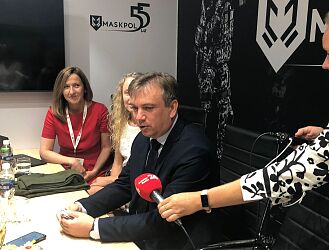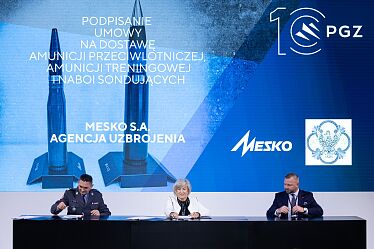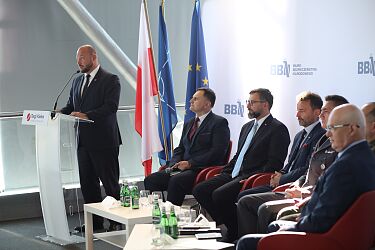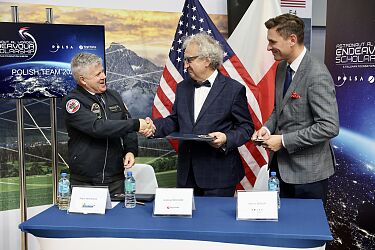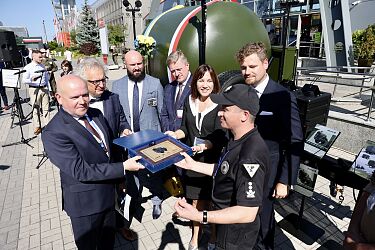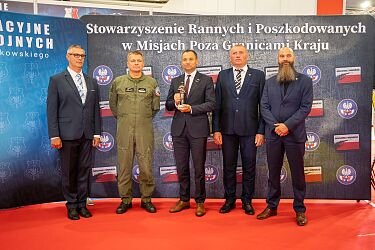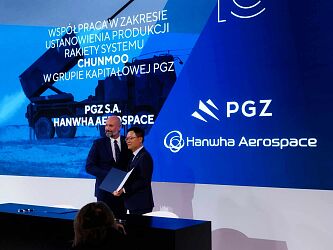News
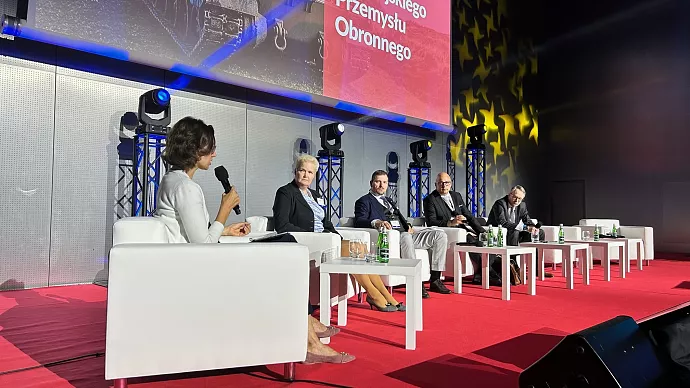
Security is Europe's priority. New challenges for the defence industry!
– The plans of the Polish government reach 4% of GDP earmarked for defence. 2% used to be a success, but many European countries are still at 1.5%; we all want the funds spent on armaments to be spent well. Difficult years are ahead, but it is important to coordinate security efforts and that is what today's debate and the International Defence Industry Exhibition are about - Andrzej Mochoń PhD., President of the Management Board of Targi Kielce, said during the opening of the debate. The event was organised by the Ministry of Development and Technology and the Kielce exhibition and congress centre.
The experts of the conference referred to the expenditures of individual countries on the modernization of the army and the equipment purchase. – Since 2014, public funding for defence purposes in Lithuania has increased fourfold, and since 2020 it has doubled. Now, they account for 2.9% of GDP. The size and the headcount of the Lithuanian army is also constantly increasing - said Robert Joudka, board member of the Lithuanian Defence and Security Industry Association (LDSIA). – Europe is not self-sufficient in terms of production. For many years, Germany systematically destroyed its defence system. When it comes to security, we need to do more, to wlak the talk. Europe is lagging on the technological level; many of the things we see in the world are not available on the Old Continent. We are behind - recapitulated Joudka.
– Since last year, we have been putting more effort into this area and at the moment we have aeramarked 2% of GDP to armaments. Fortunately, in Germany there is a change of thinking on this issue; we need to build a sense of security in Germany and all of Europe - said the representative of the German defence and security industry at the EU, Karsten Lepper.
Now, actions are being taken in the European Union to strengthen cooperation between the administration and industry and to set new directions for the transformation of the European defence industry. – The European Commission is trying to facilitate cooperation and increase funding for defence and military research. It is important that everyone is strongly involved in cooperation - Lepper added.
– Unlike Germany, Finland has done a lot in this matter over the last 20-30 years, so increasing the budget for defence activities is relatively stale. This is also served by the public debate that is taking place in our country - said Tuija Karanko, Secretary General of AFDA - Association of Finnish Defence and Aerospace Industry.
– At the end of this year, new defence agreements will be concluded, which assume territorial integrity and partnership with allies. Once in Denmark we were wondering how to counter cannons with horses; Now we also have to think about how to use the technological potential in the fight against the enemy - said Henrik Navntoft Sønderskov, chief consultant of the Danish Defence and Security Industries Association (DIDAS).
In the course of the discussion, the experts also referred to specific tools at the disposal of the European Union in the context of the development of the defense industry. Thanks to the expertise of the high-level speakers, the event allowed to set a strategy related to the directions and dynamics of the development of the European defence industry. In one of the panels, the speakers spoke about the broad importance of the European Defence Fund and discussed specific EU instruments supporting the production of ammunition (ASAP) and strengthening the European defence industry through joint procurement (EDIRPA).
(ŁK)

![IMG-4589.jpg [932.98 KB]](https://www.targikielce.pl/storage/image/core_files/2023/9/6/f0f08939e5f0624e8c0a3c73fbee6020/default/preview/IMG-4589.jpg)
![IMG-4583.jpg [867.63 KB]](https://www.targikielce.pl/storage/image/core_files/2023/9/6/fe5b75fbcdd2621fecdf1e38caa8ebc7/default/preview/IMG-4583.jpg)
